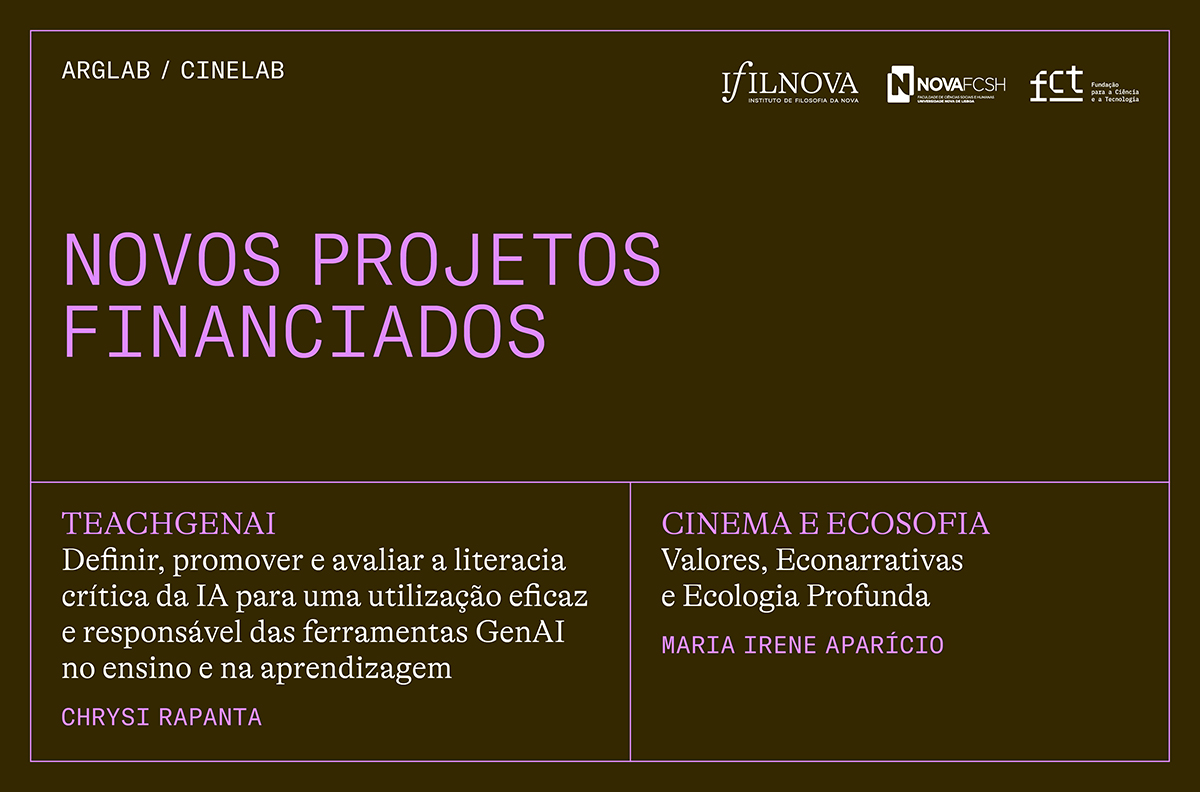
Two IFILNOVA researchers have recently had their proposals approved in the Call for Exploratory Research Projects of the Portuguese Foundation for Science and Technology (FCT).
Chrysi Rapanta, an integrated member of ArgLab, leads the project “TeachGenAI — Defining, promoting and assessing critical AI literacy for effective and responsible use of GenAI tools in teaching and learning”. This project addresses the ethical and pedagogical challenges posed by the integration of generative artificial intelligence (GenAI) in education. Despite its potential to enhance learning, this technology raises concerns about its impact on human agency, critical thinking, the spread of misinformation, and the risk of exacerbating existing inequities.
To tackle these issues, “TeachGenAI” proposes the development of a conceptual framework focused on critical thinking, enabling educators and students to evaluate and use GenAI tools responsibly in an active learning context. The project also includes the creation of training programmes for primary and secondary school teachers and students, as well as the design and validation of assessment instruments for critical GenAI literacy skills, promoting the ethical, intentional, and effective use of these technologies in educational settings.
Meanwhile, Maria Irene Aparício, a member of CineLab, coordinates the project “Cinema and Ecosophy: Values, Econarratives and Deep Ecology”, which investigates the relationship between cinema, ecology, and society. The research examines how different cinematic traditions — from fiction to documentary, experimental to interactive — reflect the principles of deep ecology and foster civic awareness. Through an interdisciplinary approach, the project aims to create theoretical and practical frameworks to support researchers, educators, filmmakers, activists, and policymakers in using cinema as a tool for ecological awareness and action.
“Cinema and Ecosophy” will map econarratives in cinema, assess the impact of ecocinema on audiences, and explore the potential of interactive narratives and emerging technologies. Expected outputs include film cycles and debates, scientific publications — including 10 book chapters and a special issue of a scientific journal — and the organisation of an international conference in Lisbon. The project also seeks to strengthen the connection between academic research and public policy, education, and environmental activism.

